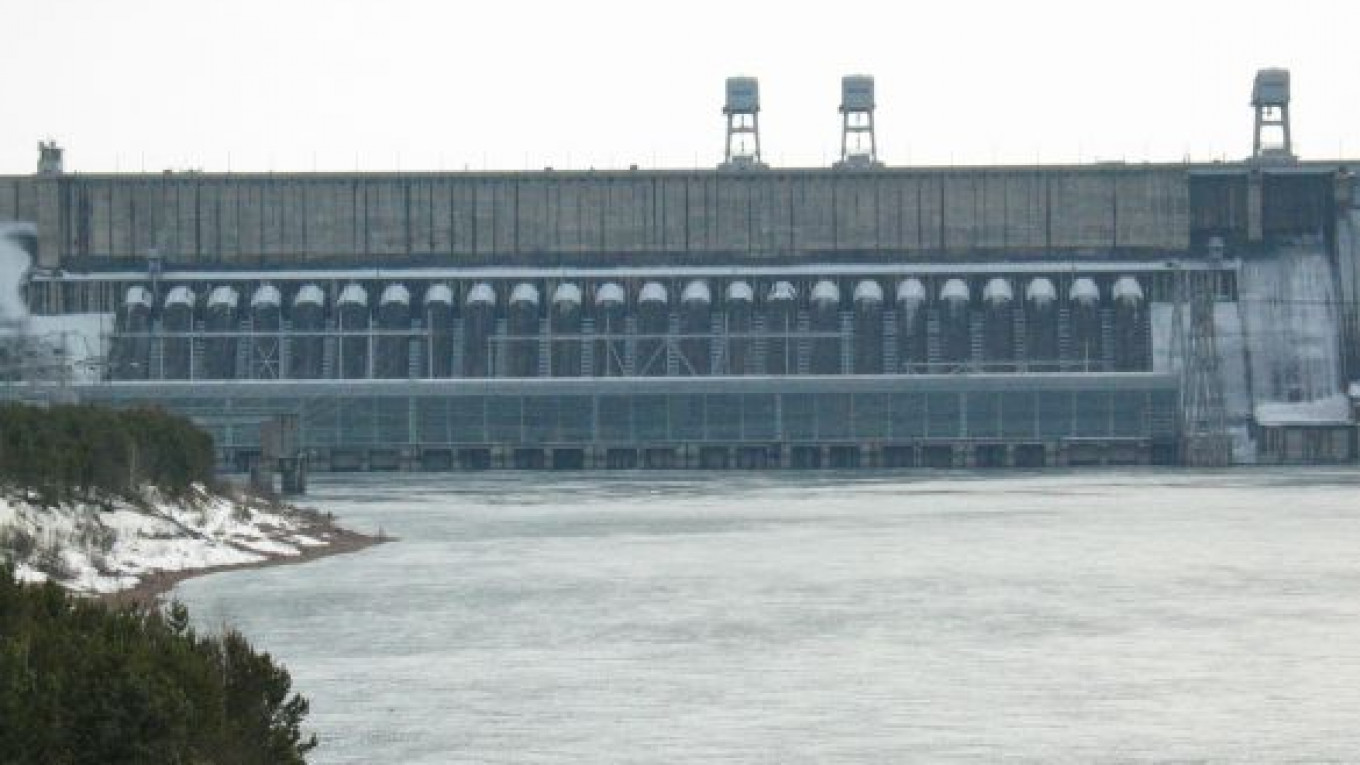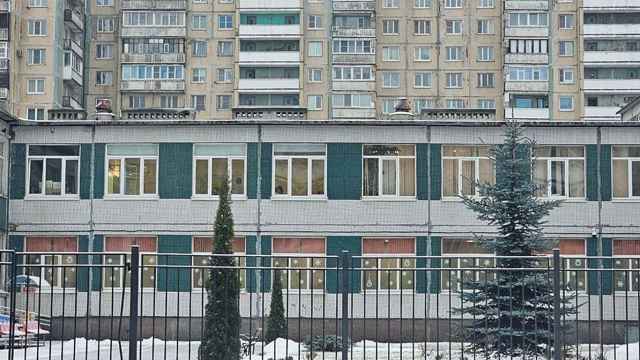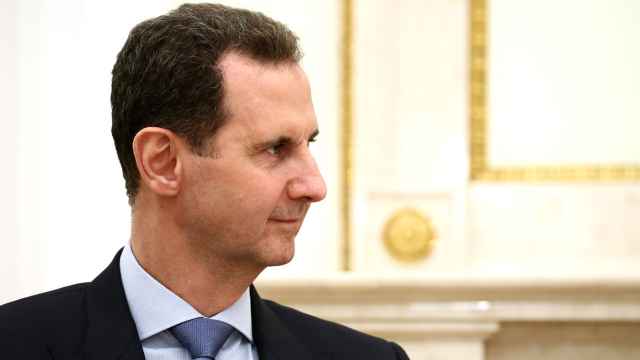The chief of hydroelectric company RusHydro on Friday asked for a delay in this year's planned downsizing of the government's stake in the company, putting additional pressure on the Cabinet's liberals determined to reduce the state's role in the economy.
The government shouldn't decrease its 58.6 percent share in RusHydro until 2015 when the company will complete the power stations that are now under construction, which will increase its value, its chief executive Yevgeny Dod said.
"We believe that we will reach our maximum value beginning in 2015," he told reporters on the sidelines of an economic forum in Krasnoyarsk. "And that is the time to open discussions with potential … investors."
Dod joined an expanding chorus of officials and executives at state companies who have spoken out over the past few weeks in favor of suspending sell-offs of government stakes. The state won't get a fair price on the currently depressed market and some of the companies' credit ratings will worsen if government ownership drops below the controlling level, they argued.
Deputy Prime Minister Igor Sechin sent a letter to Prime Minister Vladimir Putin at the end of December supporting this position, Kommersant reported. Sechin named RusHydro as well as oil pipeline monopoly Transneft and oil producers Rosneft and Zarubezhneft as companies that the state shouldn't hurry to put on the block.
The Economic Development Ministry, which proposed cutting the government's RusHydro stake to 50 percent plus one share this year, reiterated its position Friday that it does not insist on getting rid of the stakes at any price. But even if the deals are not done before year-end, Economic Development Minister Elvira Nabiullina said the government must at least start the process of getting ready to sell by obtaining valuation estimates, improving corporate governance and determining the method of selling — to a strategic partner or by floating the shares on a stock exchange.
"Nobody's saying we should sell at the market's low point," she said as she accompanied Prime Minister Vladimir Putin in Novosibirsk, Interfax reported. "We are proposing to prepare the companies for privatization."
The government will complete a review of its privatization strategy before a new president takes office in May, Nabiullina told reporters on an airplane between Moscow and Novosibirsk late Thursday, Bloomberg reported.
Both outgoing President Dmitry Medvedev and presidential hopeful Vladimir Putin have promised that the government will reduce its ownership of some of the country's biggest companies.
On the plane, Nabiullina added that there was no reason to delay the planned sale this year of shares of Sovcomflot.
Sovcomflot, operator of the world's largest fleet of oil tankers, is among the first major companies slated for privatization, Alexei Uvarov, head of the economy ministry's property department, said earlier this month. The government plans to sell 50 percent in two steps by the end of this year, he said.
MINSK — Belarus plans to offer stakes in 19 major state-owned companies this year, five fewer than previously planned, State Property Committee chairman Georgy Kuznetsov said, Bloomberg reported.
Belarus plans to raise at least $2.5 billion from state asset sales this year, Kuznetsov told reporters Friday. The list includes oil industry companies, Kuznetsov said, declining to elaborate.
President Alexander Lukashenko is currently revising the list, Kuznetsov said. According to Belarussian law, the president personally approves a divestment of strategic state enterprises. In January, Belarus unveiled plans to sell at least $12.5 billion in assets over the next five years, including stakes in commercial banks.
A Message from The Moscow Times:
Dear readers,
We are facing unprecedented challenges. Russia's Prosecutor General's Office has designated The Moscow Times as an "undesirable" organization, criminalizing our work and putting our staff at risk of prosecution. This follows our earlier unjust labeling as a "foreign agent."
These actions are direct attempts to silence independent journalism in Russia. The authorities claim our work "discredits the decisions of the Russian leadership." We see things differently: we strive to provide accurate, unbiased reporting on Russia.
We, the journalists of The Moscow Times, refuse to be silenced. But to continue our work, we need your help.
Your support, no matter how small, makes a world of difference. If you can, please support us monthly starting from just $2. It's quick to set up, and every contribution makes a significant impact.
By supporting The Moscow Times, you're defending open, independent journalism in the face of repression. Thank you for standing with us.
Remind me later.






